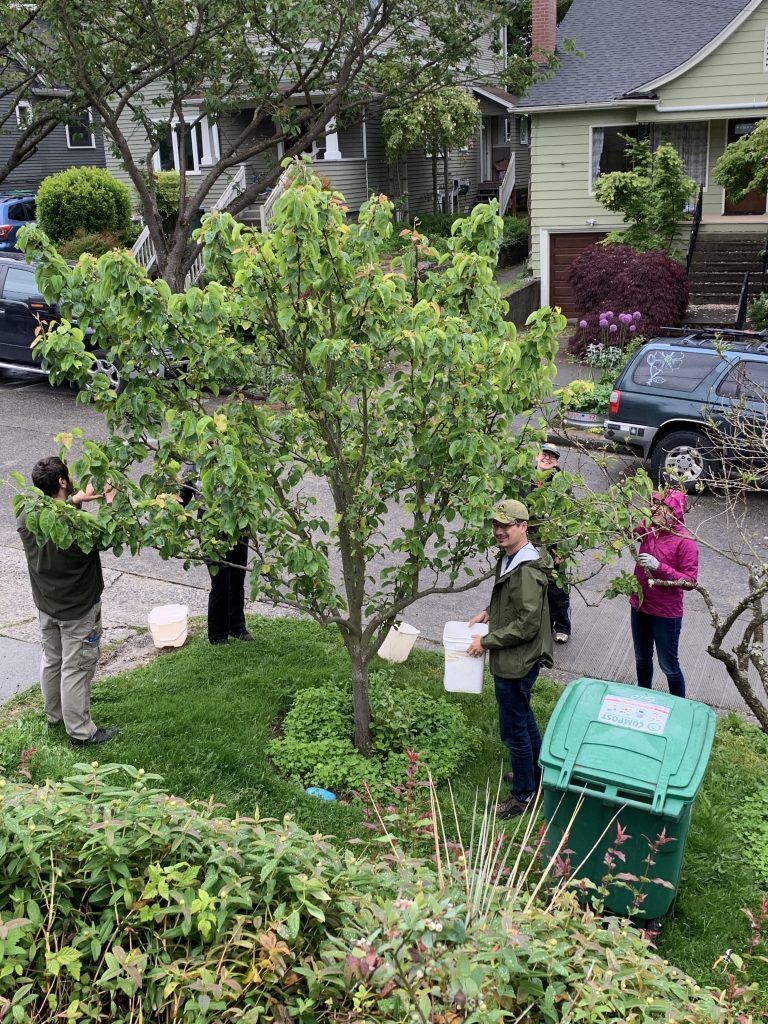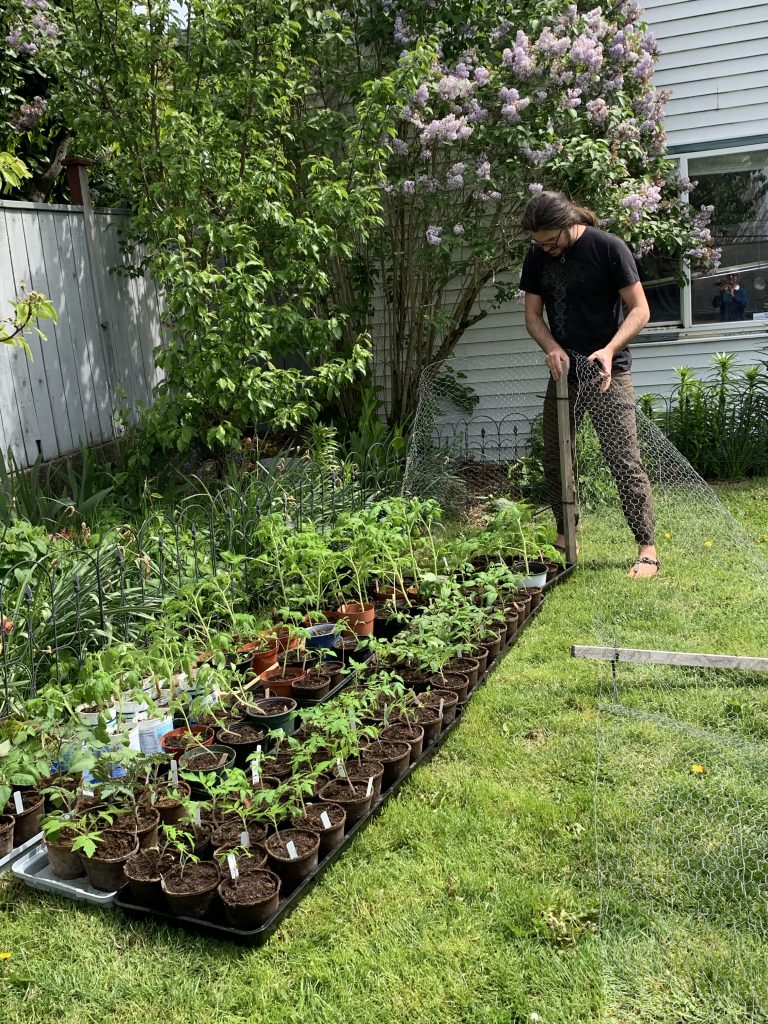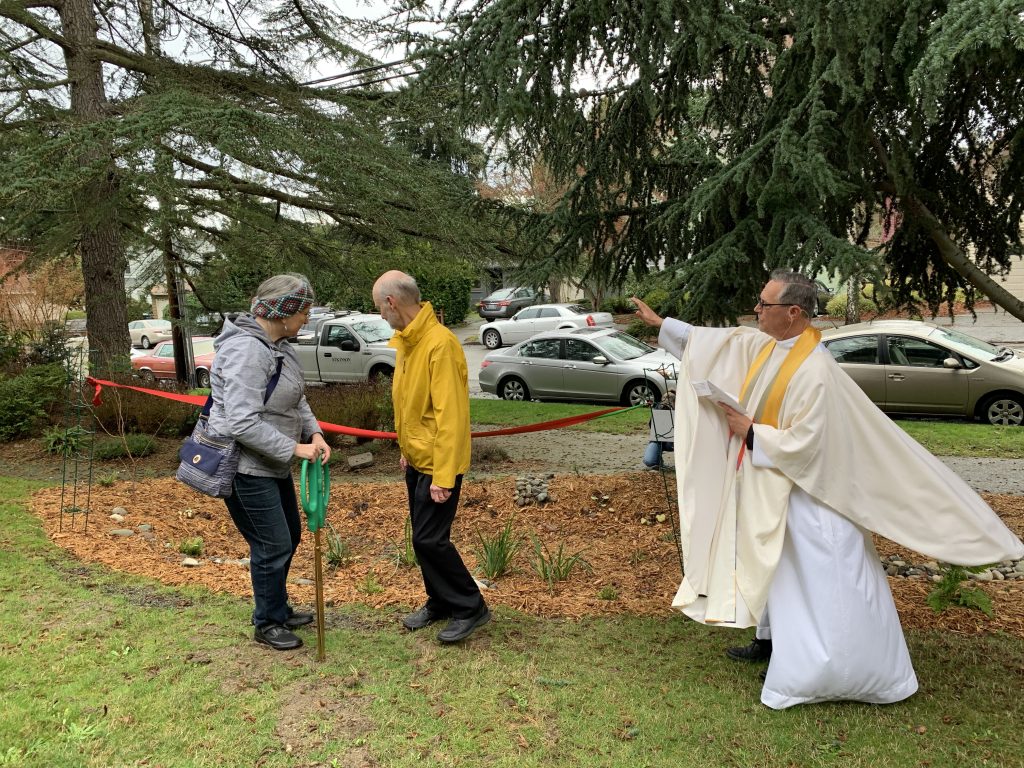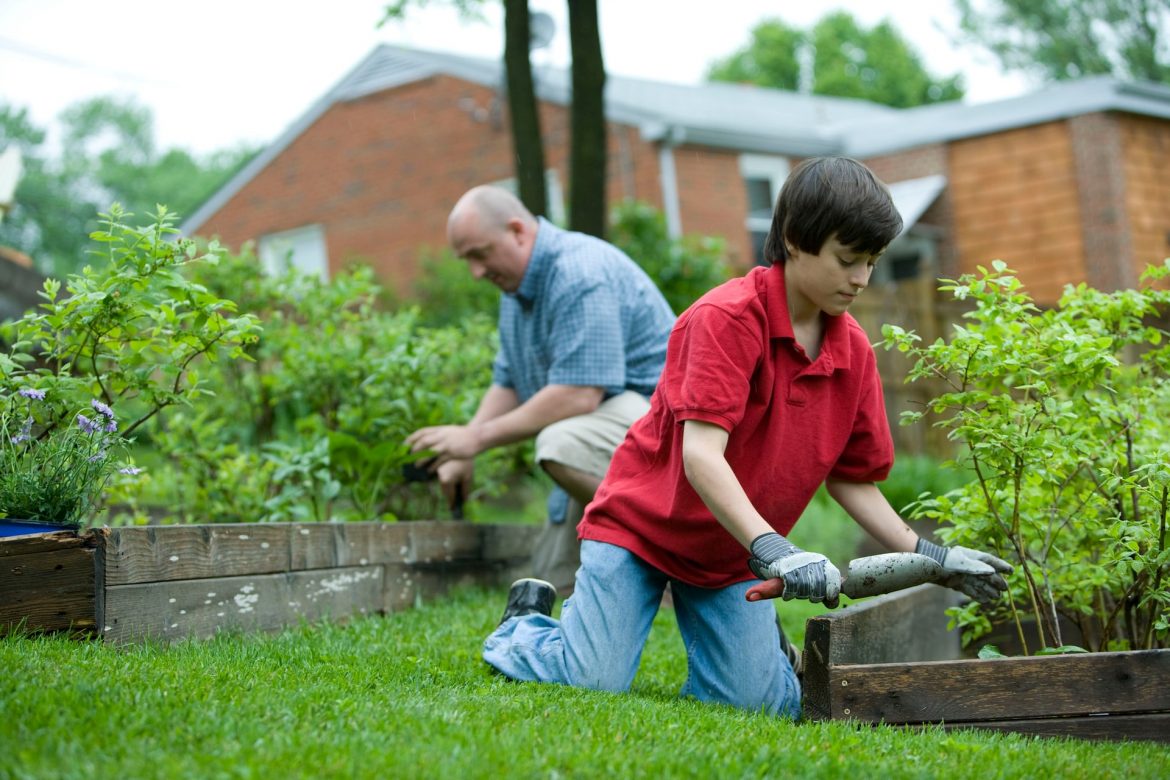by Christine Sine
It’s time to get back to church… or is it? I know that many church leaders are struggling with when and how to begin gatherings again. Some want to do it in one fell swoop, others want to be cautious and go slow. And congregants are reacting in the same ways.
As I thought about that this week in the midst of launching The Spirituality of Gardening online course it occurred to me: Maybe rather than getting people back into church, we need to get them out into the garden instead. Here is why I think that.

Socially distanced garden day
The garden provides the ultimate worship experience.
It stirs all the senses and touches us in that deep part of our souls where beauty, fragrance, abundance, and delight all reside. And, of course, it can provide this wonderful worship experience in an environment where we can socially distance safely (outside has less risk of spreading the virus than inside does) and yet enjoy good fellowship. I know this is true because we still do community garden days at the Mustard Seed House with good safe distancing but much pleasure in each other.

Hardening the tomato plants
The garden provide the most wonderful discipleship opportunities.
I am constantly learning from the garden as has probably been obvious to you over the last few weeks as I shared about The Gift of Strawberries and What We Can Learn From Tomatoes About Reopening Our Churches. Jesus frequently used garden metaphors in his preaching. The parable of the sower is a good example. And we don’t fully understand so much of what is said in the Bible when we lack garden connections. Like that seemingly throw away line in John 20:15 where it says of Mary “and she thought he was the gardener“. Even the compost bin has much to teach us about the ways of God.
A place where diversity is paramount
Monoculture gardens demand more fertilizer, more pesticide and more work. Diversity is a necessity if we want a healthy organic garden. I think our churches could learn a lot from that. What if we saw diversity of age, ethnicity and social strata as a necessity for a healthy church? Can you imagine how it would change our churches and our attitudes towards people? And yet God works though diversity and I think the church needs to as well.
A place where all are equal.
I love to get out in the garden with a group of people of all ages, social backgrounds and ethnic groups. This is the place where we easily fall into a camaraderie of true equality. Those at the margins are often the ones with the most knowledge. Kids love to tell their elderly friends what they have learned and all of us are in our oldest clothes so you have no idea who is poor and who is wealthy. The racism that continues to boil over here in the U.S. horrifies me and the fact that Sunday mornings have in the past been described as the most segregated time in the week is an appalling thought. We need the solidarity of community as described in Galatians 3:28, what Dorothy Butler Bass described in a recent article as “Paul’s rallying cry to overcome divisions of race, class, and gender.”

Dedicating rain garden at St Andrews
A place where we meet the true master gardener.
We so easily forget that God was the first gardener, the true master gardener who created us to be co-gardeners in Eden. Can you imagine the delight of walking in the cool of the evening with God like Adam and Eve did? Imagine the Eternal one delighting in the beautiful plants in the garden, suggesting how to prune and fertilize for best productivity, enjoying the luxuriant growth we were called to tend and look after. Here we experience the delight of reconnecting to our true vocation – something that I think that church is meant to help us do.
A place where we find sustenance for body and soul.
When I come in from the garden, or even from one of my awe and wonder walks around the neighbourhood, I feel that I glow with delight (and Tom thinks the same thing.) In The Spirituality of Gardening course, I talk about some of the benefits of gardening and the substances that help produce those ecstatic moments for us – it is fascinating. We are created to interact with gardens. Now that doesn’t mean that we all need to grow vegetables, or even plant flowers, but it does mean that we all need to get out into nature and interact with God’s wonderful creation.
So as you get ready to go back to church, consider this – how could you make space for outdoor gatherings amidst God’s creation? How would that enhance your worship and your experience of God and of each other? There are actually whole church movements that revolve around outdoor meetings – groups like Forest Church and Wild Church that I think could teach us a lot about alternative ways to gather that could keep us safe and healthy and draw us together in new and inspiring ways. What do you think?

